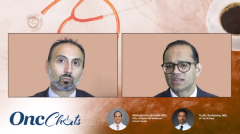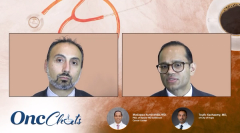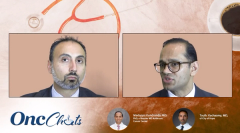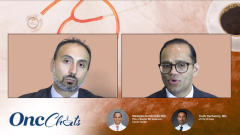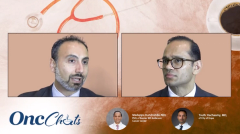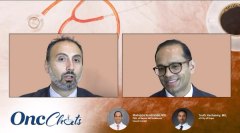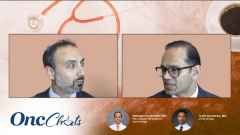
Understanding Endoscopy in the Realm of GI Cancers: Examining the Role of Endoscopy
In this third episode of OncChats: Understanding Endoscopy in the Realm of GI Cancers, Madappa Kundranda, MD, PhD, and Toufic A. Kachaamy, MD, highlight the advantages and scope of endoscopic procedures in gastrointestinal cancer.
In this third episode of OncChats: Understanding Endoscopy in the Realm of GI Cancers, Madappa Kundranda, MD, PhD, of Banner MD Anderson Cancer Center, and Toufic A. Kachaamy, MD, of City of Hope, highlight the advantages and scope of endoscopic procedures in gastrointestinal cancer.
Kundranda: That leads us to today’s discussion, which is [going to focus on] endoscopic oncology. Dr Kachaamy, can you elaborate on the trend of endoscopy and why this growing field is playing a bigger role in the cancer world?
Kachaamy: Absolutely. There are a few factors that favor endoscopy growth that’s happening organically. First, the mucosal healing. For example, if you bite your tongue, after 24 hours, you can almost not tell where the injury was, and the healing is near complete. If you compare that to skin healing, for example, it takes around 2 weeks to have similar healing externally. Second, is the improvement in technology. When computers [were first created], the computer was the size of the room. Now, with a handheld device that fits in your palm, you have more computing power.
This ability to do more with smaller devices has enabled the endoscopist do a lot more through natural orifices. Natural mucosal healing that favors internal faster healing, combined with improvement in technology and this desire from the patients and the oncology team for organ preservation is fueling this increase in endoscopic procedures in the cancer world, or what we know as endoscopic oncology.
This started in the benign world even way before, for example, polyp resection used to be a surgical disease until colonoscopy came about. Now, it is almost exclusively a disease managed endoscopically. Barrett’s esophagus, a decade ago, used to be managed with surgery. When you have high-grade dysplasia or early cancer, now it’s exclusively an endoscopic disease. We’re seeing a growth in bariatric endoscopy, which is also fueled by this faster healing and improvement in technology; [this is the] same thing we’re seeing in the cancer world, which is fueling endoscopic oncology. [That raises the question,] how do we define the field of endoscopic oncology?
Kundranda: This is an important question, and the way I would define the field of endoscopic oncology focuses on 2 aspects: cancer evaluation and management. It spans the entire spectrum of cancer diagnosis, staging, resection, palliation, ablation, management of treatment-related adverse effects, and the assessment of treatment response. Eventually, the other end of the spectrum is surveillance.
Check back on Friday for the next episode in this series.


